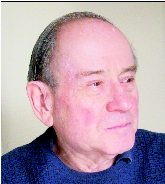 Guest Post
Guest Post
by Julian Block
The only time most of us think of doing something about our federal income taxes is once a year — the hours we spend actually grappling with Form 1040 or when gathering records to deliver them to a paid preparer. What we should do is make tax planning a year-round concern and position ourselves to take full advantage of the many opportunities that are available to lessen the amount that is siphoned off each year by the IRS. The savings can amount to many thousands of dollars. What follows are some tactics that not only can save taxes for 2014, but even provide a head start on 2015 as well. Continue reading “Year-End Tax Help for Authors”

 Guest Post
Guest Post Guest Post
Guest Post Guest Post
Guest Post